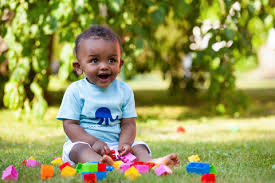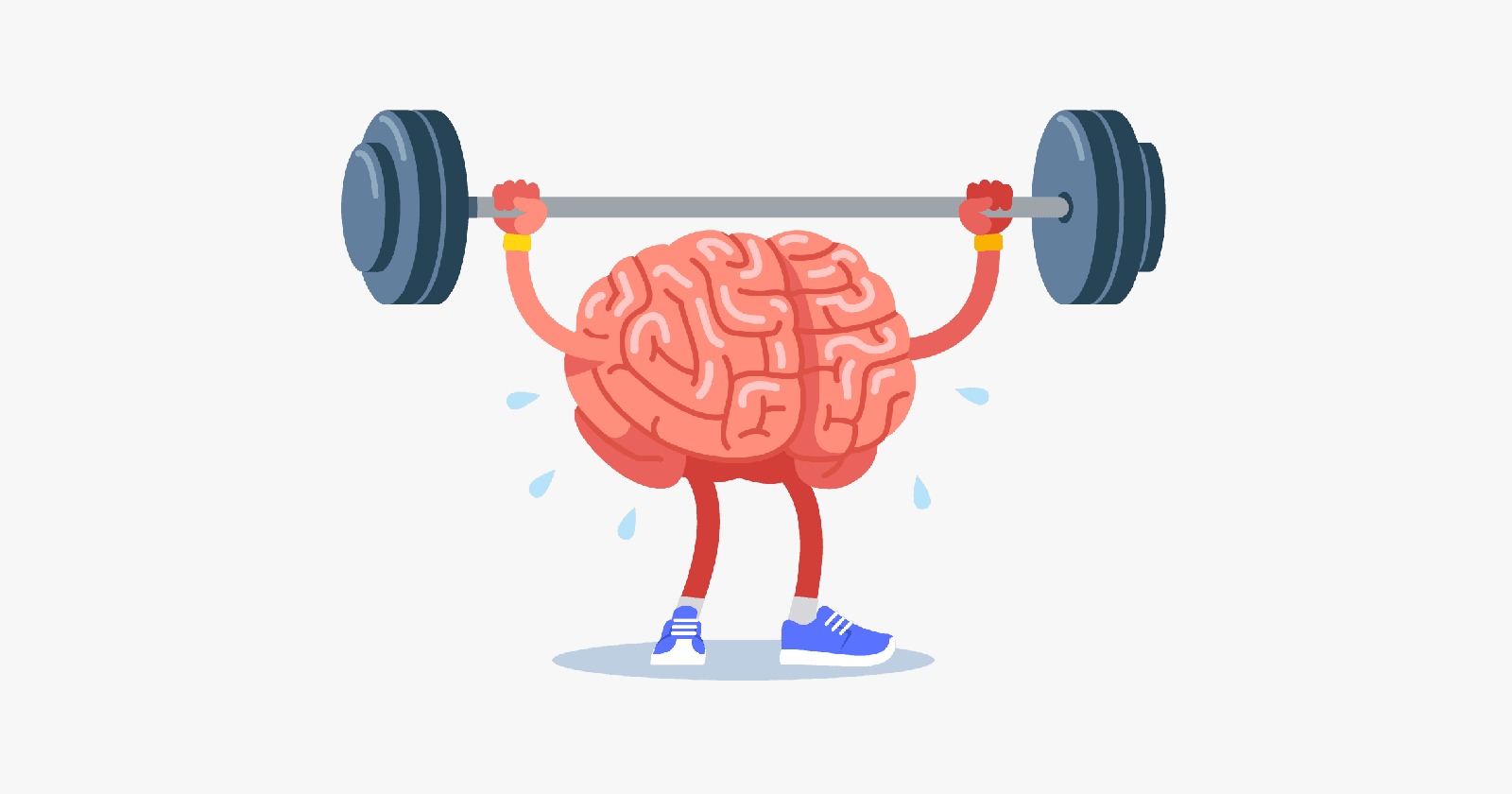
Importance of Outdoor Time for Babies’ Physical & Mental Health
Outdoor time is vital for babies’ physical and mental health, offering benefits from stronger bones and muscles to emotional calmness and curiosity. Sunlight ensures healthy vitamin D levels, while play improves sleep, immunity, and social interaction. Exposure to natural sights and sounds nurtures creativity and brain development.
💪 Fitness Guru
40 min read · 20, Aug 2025

Introduction
In our modern lifestyle, babies often spend more time indoors—surrounded by screens, toys, and artificial light—than outside in the fresh air and natural environment. While indoor play has its benefits, outdoor time is essential for a baby’s holistic development. The natural world stimulates their senses, strengthens their body, and calms their mind.
From stronger bones to sharper minds, outdoor play offers countless benefits that no toy or gadget can replace. It provides opportunities for exploration, learning, and growth that lay the foundation for lifelong physical health, emotional balance, and curiosity about the world.
In this article, we’ll explore why outdoor time is crucial for babies, the science behind it, the benefits it brings, practical daily habits to include, and common myths parents often believe.In today’s world, where technology and urban lifestyles are rapidly shaping our daily routines, the importance of spending time outdoors is often overlooked, even for the youngest members of society. Babies, who are at the most delicate stage of growth and development, benefit tremendously from outdoor experiences. The early years of life are critical for building the foundation of physical, cognitive, and emotional health, and outdoor time plays an essential role in nurturing all of these aspects. While parents often prioritize nutrition, sleep, and structured activities for their babies, giving them exposure to the outdoors is equally vital in ensuring balanced growth. The natural environment provides stimulation that no indoor activity can completely replicate, making it indispensable for holistic development.
One of the foremost benefits of outdoor time for babies lies in physical health. Sunlight, for instance, is a natural and irreplaceable source of vitamin D, which is crucial for healthy bone development, strong immunity, and proper muscle function. Limited exposure to sunlight can lead to deficiencies that may cause health problems such as rickets or weakened immunity. Just a few minutes of gentle sunlight in the early morning or late afternoon can provide babies with the vitamin D they need to thrive, while also regulating their sleep cycles by influencing melatonin production. In addition to sunlight, outdoor play allows babies to move freely in a more expansive space compared to the indoors. Crawling on grass, attempting to walk on uneven surfaces, or simply observing the movement of leaves and insects strengthens their muscles, enhances balance, and improves motor coordination. Unlike indoor environments, outdoor settings encourage varied physical movements that stimulate growth and make babies more agile and active.
Beyond physical growth, outdoor time deeply influences mental and cognitive development. Babies are naturally curious, and the outdoors provides endless opportunities for sensory exploration. The feel of grass under their hands, the sound of birds chirping, the sight of butterflies fluttering, and the smell of fresh flowers all create rich sensory experiences that stimulate their developing brains. These sensory inputs are far more diverse and dynamic than what they would encounter indoors, which contributes to stronger neural connections. In fact, research has shown that babies exposed to natural environments develop better problem-solving skills, improved attention spans, and heightened creativity later in childhood. The unpredictability of nature fosters curiosity, while the constant novelty of outdoor environments helps babies learn how to adapt and engage with the world around them.
Mental health is another domain where outdoor time proves invaluable. Even at an early age, babies are susceptible to mood changes, irritability, and stress. Outdoor environments have a calming effect on the human mind, and this applies to babies as well. Exposure to natural light and fresh air reduces fussiness, improves mood, and promotes better sleep patterns. Babies who spend regular time outdoors often appear calmer and more content, which in turn helps parents create a healthier family routine. The bond between parent and child also strengthens during outdoor activities, as spending time together in a relaxed natural environment fosters emotional security and trust. Whether it is a short stroller walk in the park or sitting under a tree while the baby plays, these shared experiences lay the foundation for positive relationships and emotional well-being.
Social development is another area enriched by outdoor exposure. Babies who spend time outdoors often encounter other children, animals, and people, which provides them with an opportunity to observe and learn social cues. While they may not engage directly at a very young age, watching others in natural settings helps them gradually understand interaction, empathy, and communication. Even seeing other babies crawl or walk around them can motivate them to try new movements, reflecting the role of outdoor environments in encouraging growth through observation and imitation. Additionally, exposure to animals, such as watching birds or petting a dog under supervision, builds compassion and awareness of other living beings, contributing to emotional intelligence in later stages of life.
Outdoor time also helps babies develop resilience and adaptability. The natural world is not as controlled as indoor environments, and babies learn to respond to variations in temperature, textures, sounds, and even minor challenges like crawling on uneven ground. These experiences may seem small but play a major role in building problem-solving skills and adaptability. Learning to cope with minor discomforts such as wind, sunlight, or slight bumps while crawling helps babies gradually develop a stronger tolerance for the real world. This resilience not only contributes to mental strength but also helps them face challenges more confidently as they grow.
Parents often express concerns about safety and pollution when it comes to taking babies outdoors, and while these concerns are valid, they can be managed with thoughtful planning. Choosing parks, gardens, or safe open areas away from heavy traffic can minimize risks and ensure a healthier environment. Outings during non-peak hours can avoid overcrowding, and ensuring proper clothing, hydration, and sun protection keeps babies comfortable. With basic precautions, the benefits of outdoor time far outweigh the potential risks, making it a safe and rewarding practice.
In conclusion, outdoor time for babies is not just an optional activity but a necessity for their overall physical and mental health. From strengthening bones and muscles to stimulating the brain, improving mood, and fostering social and emotional skills, the outdoors provides a natural classroom for growth. Parents who prioritize outdoor experiences give their babies the opportunity to thrive in ways that structured indoor routines alone cannot provide. Nature nurtures curiosity, resilience, and joy, making it an irreplaceable part of childhood development. By weaving outdoor time into daily schedules, even in small doses, families can ensure that their babies grow healthier, happier, and more connected to the world around them. Ultimately, the gift of time outdoors in early life becomes the foundation for a lifetime of well-being, vitality, and balance.
Why Outdoor Time Matters for Babies
Outdoor environments provide experiences that indoor settings cannot. Fresh air, natural light, grass under tiny feet, birds chirping, and space to move freely—all of these elements nurture babies in unique ways.
Key reasons outdoor time is vital:
- Sunlight provides vitamin D, essential for bone growth.
- Open spaces encourage crawling, walking, and balance.
- Natural environments stimulate multiple senses at once.
- Outdoor play fosters independence, curiosity, and resilience.
- Fresh air supports better sleep patterns and mood regulation.
Simply put, outdoor time is nature’s way of giving babies the nourishment their bodies and minds crave.
Physical Benefits of Outdoor Time
- Bone and Muscle Development
- Sunlight provides natural vitamin D, which supports calcium absorption and strong bone growth. Outdoor crawling, walking, or climbing helps develop muscles, coordination, and motor skills.
- Better Sleep Cycles
- Exposure to natural light regulates circadian rhythms. Babies who spend time outside often sleep better and develop healthier nap and nighttime routines.
- Boosted Immunity
- Fresh air and mild exposure to natural microbes strengthen a baby’s immune system, reducing chances of frequent illnesses.
- Healthy Weight Maintenance
- Outdoor play encourages movement, which helps prevent sedentary habits and lowers the risk of childhood obesity later in life.
- Improved Vision
- Research shows that babies who spend more time outdoors have a reduced risk of developing myopia (nearsightedness) as they grow.
Mental & Emotional Benefits of Outdoor Time
- Stress Relief and Calmness
- Nature has a calming effect. Outdoor time reduces fussiness and soothes babies when they are overstimulated indoors.
- Boosted Curiosity and Learning
- Every leaf, sound, and breeze is a learning opportunity. Babies exposed to diverse environments develop curiosity and sharper cognitive skills.
- Social Development
- Outdoor play often involves interactions with other children and caregivers, improving communication and early social skills.
- Emotional Resilience
- Exploring the outdoors helps babies develop confidence and adaptability. They learn to face new environments with curiosity rather than fear.
- Stronger Bonding with Caregivers
- Outdoor walks, games, and exploration provide precious bonding time between parents and babies, strengthening trust and attachment.
Daily Outdoor Practices for Babies
Morning Routine
- 15–20 minutes of stroller walks or time on a blanket under shade
- Sunlight exposure before 10 AM for vitamin D
- Gentle stretches or crawling practice on soft grass
Midday Boost
- Quiet outdoor play in shaded areas (avoid harsh noon sun)
- Let babies explore textures—touching grass, leaves, or sand safely
- Short tummy-time session outdoors
Evening Ritual
- Playtime in the park or garden—babies can crawl, toddle, or observe older kids
- Soft games like rolling a ball or clapping to birdsong
- A calm outdoor walk to wind down before bedtime
Weekly Outdoor Practices
- Plan at least 3–4 outdoor sessions of extended play (30–45 minutes).
- Visit a park, garden, or baby-friendly outdoor space once a week.
- Introduce sensory play with water, sand, or leaves.
- Let babies explore slightly new environments—different parks, backyards, or open spaces.
- Include family bonding activities like picnic mats, storytelling under trees, or gentle outdoor yoga with your baby beside you.
Outdoor Safety Tips for Babies
- Avoid direct harsh sunlight between 11 AM–4 PM.
- Use hats, umbrellas, or baby-safe sunscreen when needed.
- Always supervise closely—babies explore with their hands and mouths.
- Keep hydration in mind, even for infants—breast milk or water for older babies.
- Dress in breathable, weather-appropriate clothing.
Common Outdoor Activities for Babies
- Nature Walks – Even if they’re in a stroller, babies absorb the sights, sounds, and smells.
- Tummy Time on Grass – Strengthens neck and back while introducing natural textures.
- Bubble Play – Watching and popping bubbles outdoors delights babies.
- Water Play – A small tub or sprinkler play in warm weather.
- Music & Movement – Singing, clapping, or gentle dancing outside.
- Ball Games – Rolling or soft tossing to encourage coordination.
- Sky Watching – Lying on a mat together, pointing at clouds, birds, or stars.
Common Problems When Babies Don’t Get Outdoor Time
- Weaker Bones and Vitamin D Deficiency
- Without sunlight, babies may develop rickets or weaker bones.
- Sleep Disturbances
- Staying indoors all day may disrupt natural sleep cycles.
- Higher Stress and Irritability
- Babies may become crankier and harder to soothe without outdoor play.
- Delayed Motor Skills
- Limited crawling, walking, and sensory stimulation can slow physical milestones.
- Weaker Immune System
- Over-sanitized indoor environments can reduce immune resilience.
Myths About Outdoor Time: Busted!
“Babies are too fragile to go outside.”
→ False! With proper care and supervision, outdoor time boosts their resilience.
“Sunlight is always harmful for babies.”
→ Not true. Safe morning and evening sunlight is the best natural vitamin D source.
“Indoor play is enough.”
→ Wrong. Outdoor experiences engage multiple senses in ways indoor toys cannot.
“Cold or rainy weather means no outdoor time.”
→ Not necessarily. With proper clothing and short sessions, babies can safely enjoy varied climates.
“Bugs and dirt are dangerous.”
→ While hygiene matters, mild exposure to natural microbes supports immunity.
Sample Outdoor Play Plan for Babies
Morning: 20-minute stroller walk with sunshine exposure
Midday: Quiet sensory play in the garden (touching grass, water bowl play)
Evening: Park visit—watching kids, crawling on mat, playing with ball
Weekly Add-on: Family picnic, new park visit, or outdoor baby yoga session
Conclusion
Outdoor time is not just about fun—it’s essential for a baby’s physical growth, emotional balance, and mental stimulation. From stronger bones to sharper senses and calmer moods, the benefits are endless. Nature acts as a free, nurturing classroom where babies can explore safely, develop resilience, and connect with the world.
For parents, outdoor sessions are also moments of bonding, relaxation, and joy. Even 20–30 minutes a day can transform your baby’s health and happiness.
So, step outside with your little one. Let them feel the breeze, touch the grass, and watch the clouds drift by. These simple moments will shape their body, mind, and heart for years to come.
A little sunshine, a little fresh air, and a lot of love—this is the best gift you can give your baby.
Q&A Section
Q1:- Why is outdoor time essential for a baby’s physical development?
Ans :- Outdoor play strengthens muscles, bones, and motor skills. Crawling on grass, walking on uneven surfaces, or playing with natural elements enhances balance, coordination, and overall physical growth.
Q2:- How does sunlight exposure benefit babies?
Ans :- Natural sunlight provides vitamin D, which is vital for healthy bone development and immunity. Safe, short outdoor exposure prevents deficiencies and supports overall health.
Q3:- In what way does outdoor play support a baby’s mental health?
Ans :- Nature stimulates a baby’s senses—sight, sound, touch—which reduces stress, improves mood, and fosters calmness, laying the foundation for emotional well-being.
Q4:- How does outdoor time encourage social development in babies?
Ans :- When babies interact with siblings, parents, or other children outdoors, they begin to learn sharing, communication, and cooperation, strengthening early social bonds.
Q5:- What role does outdoor exploration play in boosting curiosity and creativity?
Ans :- Exposure to birds, trees, textures, and sounds sparks imagination and curiosity, helping babies explore their surroundings and develop problem-solving skills naturally.
Q6:- Why is outdoor time linked to better sleep in babies?
Ans :- Physical activity and natural light exposure help regulate circadian rhythms, leading to deeper, more restful sleep and consistent sleep patterns.
Q7:- How does outdoor play reduce screen dependency for babies as they grow?
Ans :- Early introduction to outdoor fun builds habits of active play, reducing the reliance on gadgets and encouraging a healthier, balanced lifestyle.
Q8:- What are the cognitive benefits of outdoor time for babies?
Ans :- Outdoor environments stimulate brain development by engaging multiple senses, enhancing memory, attention span, and early learning through observation and exploration.
Q9:- How does fresh air impact a baby’s health?
Ans :- Breathing clean, fresh air strengthens the respiratory system, improves immunity, and reduces the chances of allergies and indoor-pollution-related issues.
Q10:- How can parents safely ensure outdoor play for babies?
Ans :- By choosing safe environments like gardens or parks, supervising activities, applying sunscreen, and ensuring comfortable clothing, parents can provide safe outdoor experiences.
Outdoor time is vital for babies’ physical and mental health, offering benefits from stronger bones and muscles to emotional calmness and curiosity. Sunlight ensures healthy vitamin D levels, while play improves sleep, immunity, and social interaction. Exposure to natural sights and sounds nurtures creativity and brain development.
Similar Articles
Find more relatable content in similar Articles

The Perfect Daily Skincare Routine: Morning to Night Essenti..
A perfect daily skincare rout.. Read More

Epigenetics and Exercise – How Your Workout Affects Your Chi..
“Exploring how regular physica.. Read More

Fitness for the Brain – How Workouts Rewire Your Mind...
“Discover how physical exercis.. Read More

How to Build a Skincare Routine Based on Your Skin Type (Oil..
A personalized skincare routi.. Read More
© 2024 Copyrights by rFitness. All Rights Reserved.